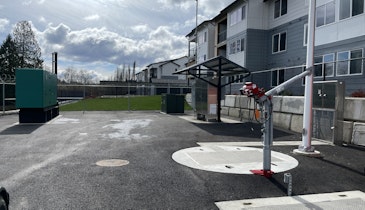Interested in Systems/ATUs?
Get Systems/ATUs articles, news and videos right in your inbox! Sign up now.
Systems/ATUs + Get AlertsIn the first of this series, we began discussing the dynamics between septic system installers and inspectors.
Some might think this is a delicate and touchy topic. My response: I hope so!
As an industry, we need to help each other by providing information that we can actually use in the field — information that can help our bottom line.
So, let’s begin with what counts most: Reducing costs and increasing profits.
Business tenet
In the incredible free enterprise system of which we are privileged to be a part, there runs a basic business tenet: Authority must be commensurate with responsibility. Any small business owner who breaks this rule does so at his peril.
Here’s how it works:
Scene A: You hire a field supervisor and assign the responsibility of ensuring that a certain project is completed on time. But you do not give him the authority to order materials and hire laborers.
How do you think he’ll fair?
Scene B: You hire a field supervisor and assign him the authority over a project to order whatever materials and to hire whatever labor he requires, but you set no responsibility requirements for completing the job. He can take as long as he likes and simply do the job in the time frame convenient to him.
How do you think he’ll fair?
Scene C: You hire a field supervisor and after making the specific goal exceedingly clear, you grant him an equal amount of responsibility and authority over the project. The field supervisor carries the responsibility of a time frame and specific completion requirements as well as the authority to obtain the materials and assistance he needs to do the job. At that point, it’s strictly up to him to get it done.
This is all well and good, but how does this translate into our interactions with inspectors?
Here’s where the kicker comes in: The inspector may not live by the “authority must be commensurate with responsibility” rule.
The inspector position
As in any business where working together is essential, problems arise when one party lacks motivation. Some inspectors might not be motivated to complete jobs quickly for a few reasons:
- An inspector’s salary is not tied to the number of completed inspections. He does not make more money if he completes more jobs like installers do.
- The inspector has authority over your job and is in a position to deny or delay your final completion.
- In many cases, the inspector is employed by a government agency and has little or no legal or financial responsibility in the job.
In other words, for this entire scenario to have a good outcome, there must be:
- A mutual respect between installer and inspector.
- Rules that are clear, comprehensive and consistently applied.
- All applicable rules must be known in advance of the job.
The installer has his role to play and to do so correctly, ethically and legally, as well.
About the Author
Frank Aguirre owns Septic Systems Express, a system design and inspection company located in San Antonio, Texas. Contact him at 210/275-7866 or via email at frank@septicsystemsexpress.com.
This article is part of a series on onsite septic inspections:
- The Politics of Onsite Septic System Inspections
- The Politics of Onsite System Inspections: Part 2
- The Politics of Onsite System Inspections: Part 3
- The Politics of Onsite System Inspections: Part 4
- The Politics of Onsite System Inspections: Part 5
- The Politics of Onsite System Inspections: Part 6





